
The Society of Industrial and Office Realtors (SIOR) Foundation has awarded a $22,000 grant to Kyiv School of Development (KSD), the school of professional real estate development, to train at least 100 reconstruction specialists to help rebuild Ukraine.
SIOR is the leading global association for real estate brokers and the SIOR Foundation is made up of real estate leaders from within the organisation, with a purpose to give back to the sector by supporting initiatives that Educate, Enhance, and Expand the commercial real estate community. It promotes best practices, responsible and sustainable development, and helps educate the next generation.
KSD, in the city centre of Kyiv, is a school focused on real estate development and construction management. Since 2017, more than 450 managers, owners of real estate development and construction companies, project managers, architects and other market specialists have graduated from this educational institution. Kyiv School of Development seeks to form an active community to change the rules of the market, as well as to educate specialists with the world standard values who create modern and progressive development projects. A new ‘Recovery Manager’ programme has now been developed by KSD to train property professionals in the reconstruction of Ukraine, regenerating towns and villages damaged by the Russian aggression against Ukraine. Funded by the SIOR Foundation, it will provide free of charge training for at least 100 reconstruction specialists.
Iain Finnegan SIOR, FSCI, FRICS, President of the European Chapter and Managing Director of Dublin-based Chartered Surveyors firm Finnegan Menton, said: “The European Chapter applied to the SIOR Foundation for this grant to enable the ‘Recovery Manager’ programme to be established and benefit not just the 100 people who will enter the real estate profession by undertaking the course, but also the Ukraine as a whole. With the Ukraine Recovery Conference (URC2024) recently held in Germany focused on a whole society approach and bringing together stakeholders to facilitate recovery, we want to play our part, bringing our experience for the benefit of Ukraine.”
Matthew Leguen de Lacroix, SIOR, FRICS, as Head of Business Development at SIOR, who visited Ukraine and the school last year, said: “Having seen first-hand the devastation of towns and cities across Ukraine as a result of war, teaching the younger generation the skills to rebuild will be essential. We are pleased to support this educational programme.”

| SIOR will be present at Expo Real in Munich, Germany during 7th – 9th October 2024. SIOR members will benefit from a substantial discount on the Expo Real ‘Early-Bird’ rate by buying their three-day delegate passes through SIOR Europe. Contact events@sioreurope.com for further information. |

| SIOR’S INFLUENCERS RECEPTION Expo Real 2024 Munich, Germany – Tuesday, 8 October 6:15 – 7:30 pm. International Investors Lounge booth, A1.132 Register here to attend the complimentary whisky tasting! |
SIOR Europe’s third ski weekend will be held from Thursday 23rd through Sunday 26th January 2025 in Chamonix Mont Blanc, France.
For a world of information about Chamonix Mont-Blanc, visit the tourist office’s website here.
Email us now to find out more and to register your interest.















On Tuesday, 23rd of April, SIOR Europe is sponsoring a networking event at Carter Jonas’ Chapel Place office in association with St Catherine’s College Economics Society, of Cambridge University. Our speakers Daniel Francis and Harry Robertson will discuss the changes in the urban environment and sustainable energy and will bring together Cambridge students and estate professionals.
For more information please contact Andrew Smith FRICS SIOR, President of the SIOR European Chapter and Head of Carter Jonas’ Industrial Team.
SIOR has conducted a survey of its European membership to assess the outlook for the office and logistics markets. The survey considers supply, demand, and rental growth for prime space, as well as the opportunities and challenges highlighted by our respondents. Other themes include the impact of technology and respondents’ business focus for 2024.
We would like to thank Daniel Francis, Head of Research at our sponsor Carter Jonas, who led this report and the SIOR members across Europe who shared their valuable insights.
SIOR’s Global President David Lockwood SIOR will be in attendance accompanied by Robert Thornburgh SIOR FRICS, SIOR’s Chief Executive Officer.
They will be supported by SIOR colleagues:-
We encourage you to bring a colleague who may be interested in learning more about SIOR.
The Grenache Cannes Wine Cellar (previously Vallauri’s Cave à Vin) is located at 10 Rue des Halles behind the Marché Forville, Cannes’s local food & flower market, just a short walk from the Palais des Festivales.


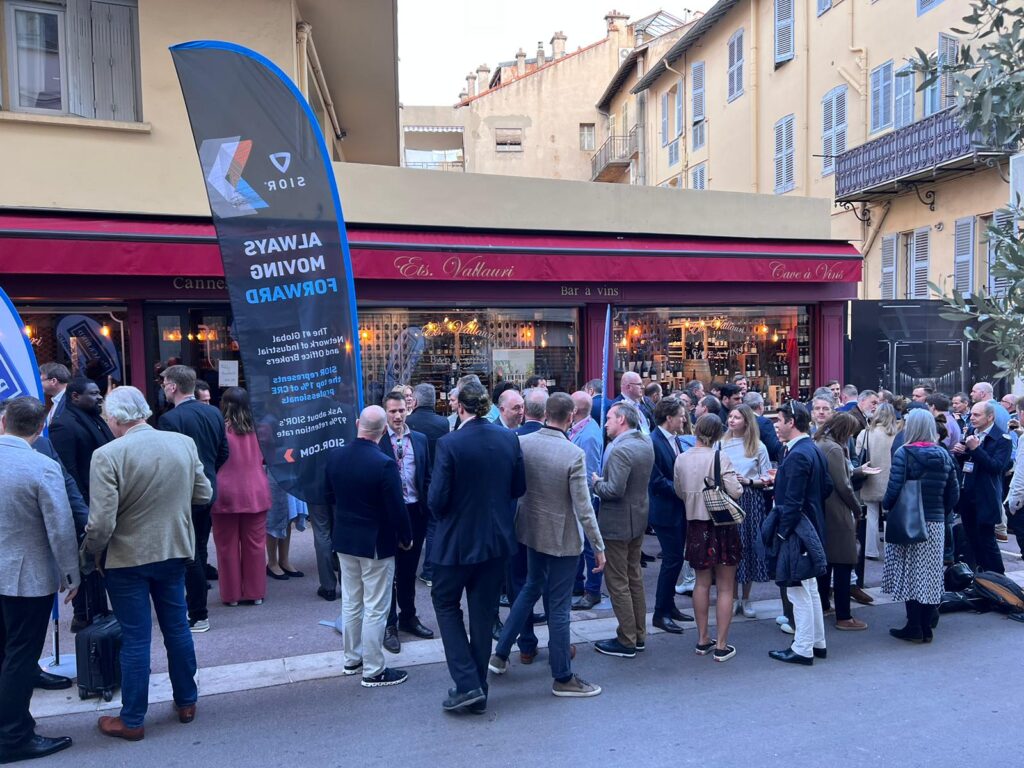
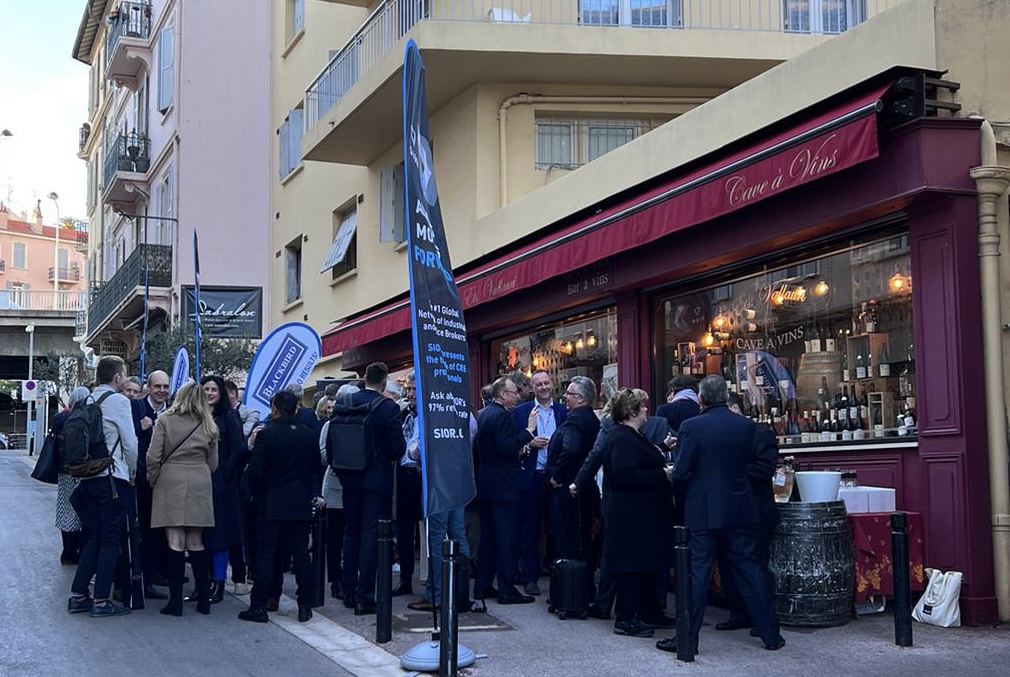
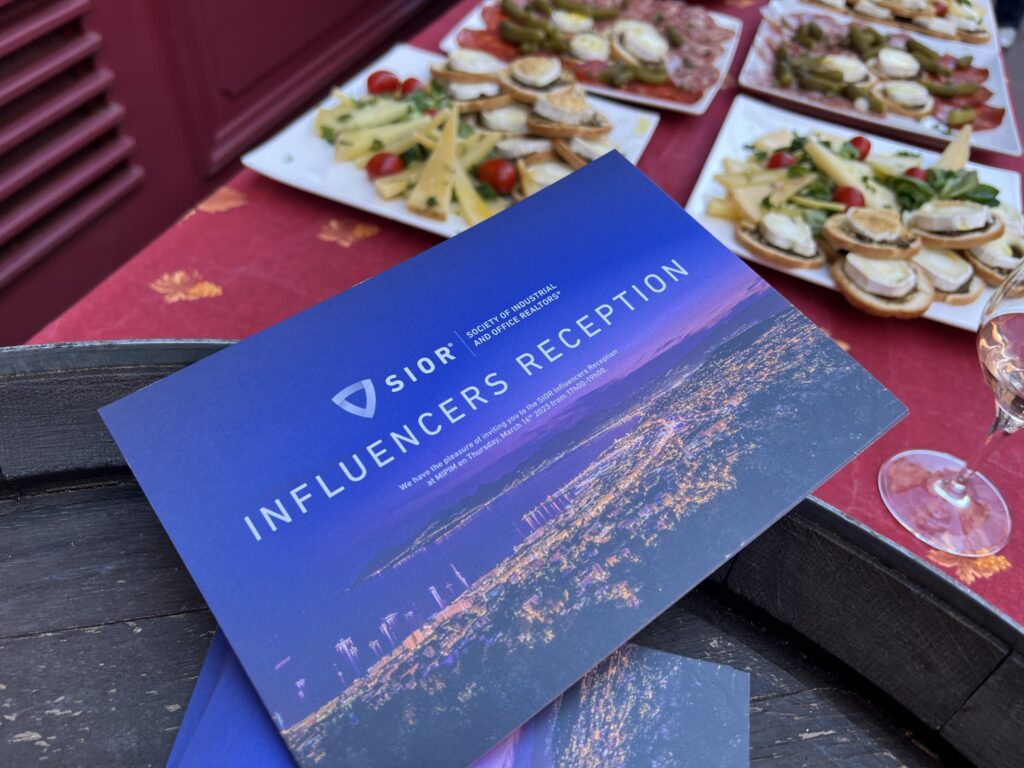
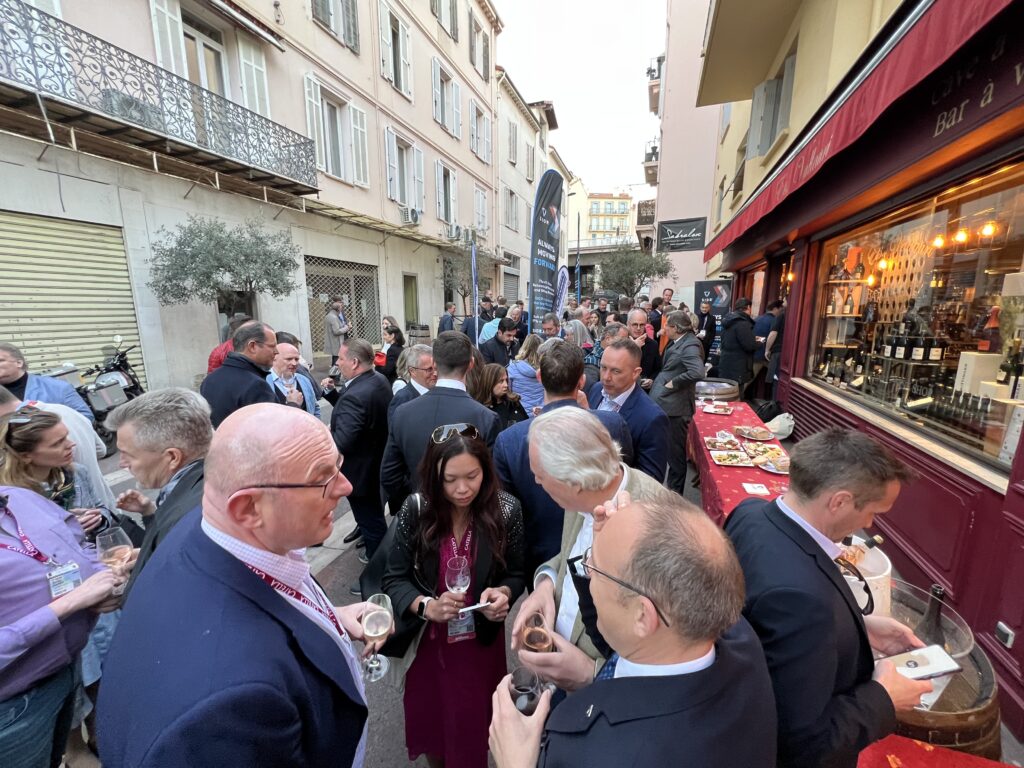
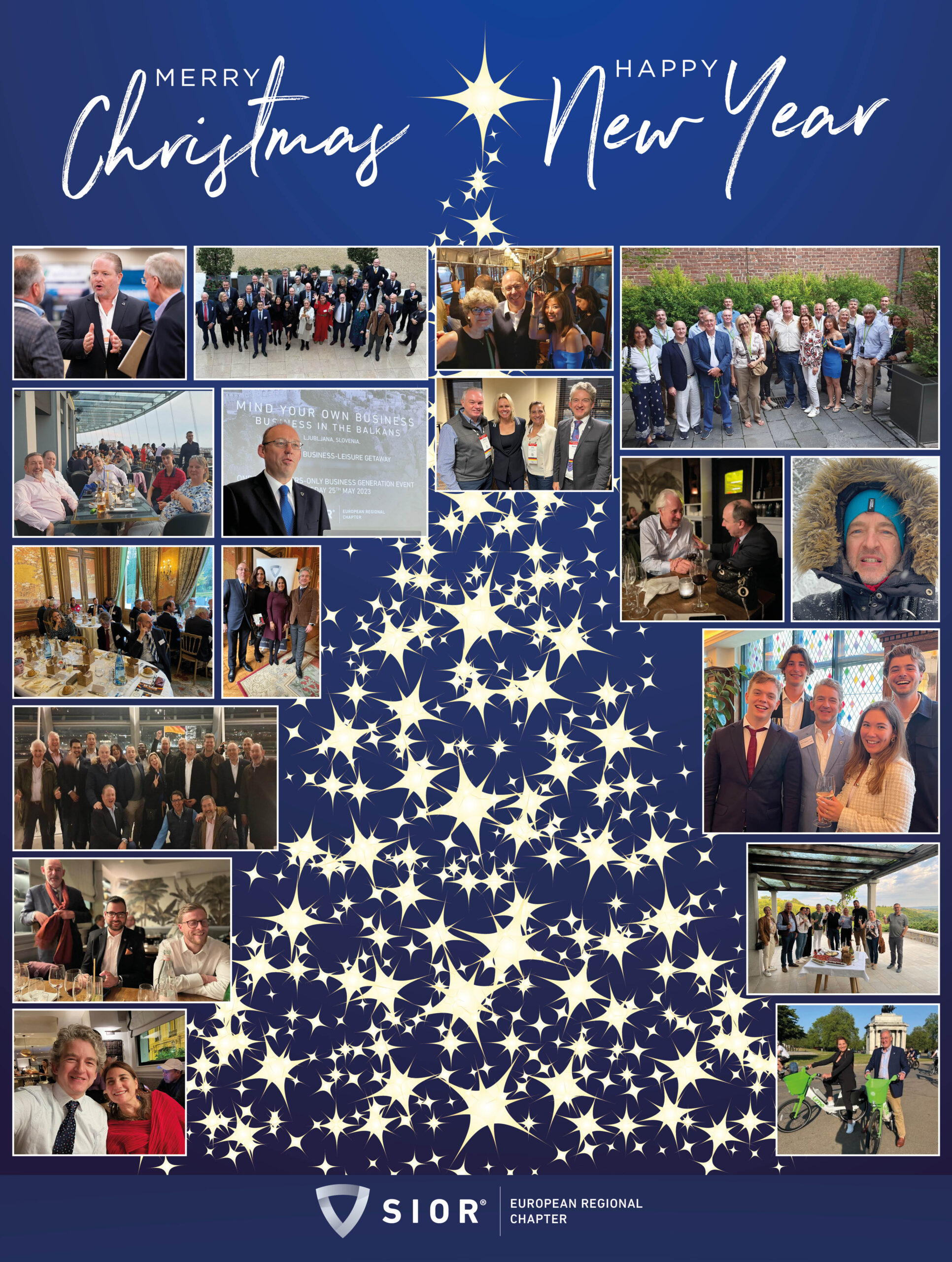
On behalf of Andrew Smith SIOR FRICS, President of the SIOR European Chapter and the members of the European Chapter leadership, we wish you all a very Merry Christmas and a healthy and prosperous New Year!
This year’s Christmas card shows a small selection of our members in action: networking, doing business, making friendships and overall enjoying our unique culture while taking our chapter from strength to strength.
The New Year will bring new faces and new exciting opportunities. 2024 will also be a special year in view of our bi-annual highlight, the 4th SIOR International Conference in Berlin. Register now to make use of the early-bird rate and keep an eye out for all upcoming events and we look forward to seeing you there.
In the meantime, we wish you a joyous festive season in the hope that those suffering will also find peace and comfort from our continued support and prayers. .

For the first time, ‘transitioning away’ from fossil fuels has featured in a climate deal. Agreed at COP28, 200 countries have signed up, setting a new standard and ambition for global climate action. Against the backdrop of this critical shift, it’s time for real estate to step up and play its part, especially in moving to renewable energy sources and promoting energy efficiency.
It is widely known that the built environment accounts for 37% of energy-related global carbon emissions: 28% from operational emissions, and the remainder from materials and construction. It also has enormous potential to be a catalyst for positive change. So, as COP28 comes to a close, we’ve gathered observations and insights from our team and network, with an overwhelming consensus to accelerate action to deliver transformational impact.
To set the context, here’s a reminder of the targets:
Anna Tsartsari, Co-Founding Director and Head of ESG and Sustainability at BE Design, also one of 1,400 signatories of a letter to the president of COP28 demanding Nationally Determined Contributions and National Adaptation Plans well before COP30 in 2025, says: “Targets are great and necessary, but we must move from commitment to action. We must also be clear about targets – 1.5 degrees is the limit, not a target. The earth is on the verge of five catastrophic tipping points according to the Global Tipping Points report and unless we take urgent action to reduce greenhouse gas emissions, we risk sudden and irreversible changes that threaten the future health of our planet. We welcome the transition away from fossil fuels. It’s a much-needed turning point that will contribute to an acceleration in renewable energy projects, the protection of our forests and energy efficiency.”
To help galvanise the global community and encourage action, the 6th December at COP28 was dedicated to “Multilevel Action, Urbanization and Built Environment/Transport”, highlighting solutions to transition to low-carbon and resilient-built environments and infrastructure, including The Buildings Breakthrough initiative aimed to accelerate a transition to sustainable buildings by 2030, targeting near-zero emission and resilient buildings.
This focus follows the establishment of the #BuildingtoCOP coalition by the World Green Building Council (WGBC) in 2021, bringing together a group of sustainability-focused built environment NGOs and organisations, alongside the UN High Level Climate Champions, to position the built environment as a critical sector for a resilient and zero emissions future at COP conferences. To further promote action, it set up the Net Zero Carbon Buildings Commitment, which recognises and promotes advanced climate leadership action in decarbonising the built environment by 2030, to inspire others to follow suit. It has 180 signatories, represents 20,000 assets and 7.2 million tonnes of CO2 emissions.
The potential for transformational change in and through the built environment is clear. The IPCC, in a report published in 2022, stated that building sector mitigation policies can reduce greenhouse gas emissions by 80 to 90%, and lift up to 2.8 billion people out of energy poverty. WGBC estimates that decarbonising the built environment amounts to an investment opportunity worth $24.7 trillion across the globe by 2030.
Paul Danks, International Representative Board Member of SIOR and former European Chapter president, said: “Businesses are driven by financial concerns and governments have a responsibility to sustain their economy, so the investment opportunity should not be understated. Being more sustainable makes commercial sense – it’s the smart decision, for financial growth and to avoid obsolescence as well as being the right thing to do, for society, resilience and the survival of future generations.”
Andrew Smith, President of SIOR Europe and Partner at Carter Jonas, added: “With members across the continent of Europe and the UK, we see trends clearly. In the last year, the market has been defined by uncertainty, but with one constant – the growing importance of ESG and sustainability. To those in our sector who say climate related interventions are cost-prohibitive, they need to look to market demands, driven by investors and occupiers who want more sustainable real estate. If they want to safeguard their business, they need to do something. This is not an opt-in or out choice.”
Matthew Leguen de Lacroix, Head of Business Development EMEA at SIOR, concluded: “We can do so much as an industry – the power to make an enormous impact is quite literally in our hands. Talking about solutions and sharing best practice are of course important but it will only matter if we act. As King Charles eloquently put it in his opening address at COP28, ‘in 2050 our grandchildren won’t be asking what we said, they will be living with the consequences of what we did or didn’t do.’ Time is of the essence and business, organisation, cities, governments and the general public will need to work together to make a difference.”
SIOR members, many of which are driving the innovation and change the industry needs, will convene at the 4th SIOR International Conference next year. Taking place on 17-19 July 2024 in Berlin, ESG, net zero and whole life carbon will all be front and centre.
The CPN’s Business Development Group, Carl Bradley, talks with Matthew Leguen de Lacroix, SIOR, FRICS, who is SIOR’s Head of Business Development, EMEA.
Read the blog on CPN’s website by clicking here.